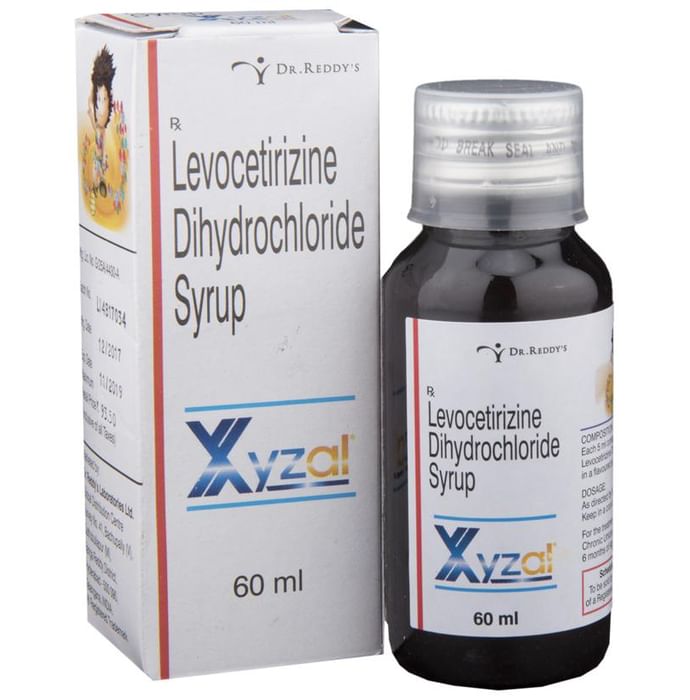Levocetirizine (2.5mg/5ml)
No related product found
Related Products by Salt Composition
Description
Introduction
In Treatment of Allergic conditions Xyzal Syrup provides relief from symptoms such as blocked or runny nose, sneezing, and itchy or watery eyes. This will make it easier for you to go about your daily activities. It can also give relief from allergic reactions after insect bites and symptoms of hives and eczema such as rash, swelling, itching, and irritation. This will improve the appearance of your skin and you may find that your mood and self-confidence improve as well. It rarely has any serious side effects and you may only need to take it on days you have symptoms. Moreover, Xyzal Syrup may make you feel less sleepy as compared to other antihistamine medicines. If you are taking it to prevent getting symptoms you should use it regularly to get the most benefit.
Benefits
Xyzal Syrup belongs to a class of medicines called antihistamines. It blocks the natural chemical substance (histamine) produced in the body during an allergic state. It also subsides (lowers) your child’s immune system’s response to these conditions, thereby reducing the symptoms.
How to use
Safety Advice
- Kidney : CAUTION - Xyzal Syrup should be used with caution in patients with kidney disease. Dose adjustment of Xyzal Syrup may be needed. Please consult your doctor. - Liver : SAFE IF PRESCRIBED - Xyzal Syrup is safe to use in patients with liver disease. No dose adjustment of Xyzal Syrup is recommended. However, dose adjustments may be required in severe liver disease. Consult your doctor before giving Levocetirizine to your child in case of severe liver disease.

